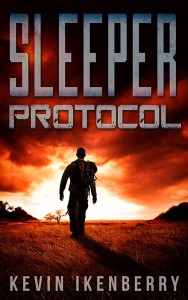Getting your work read is always a tough gig. You can promote and spam to your heart’s content … and when the first review comes in, it’s a two-star because of glaring errors in your story, lots of passive writing, and you even change point of view halfway through the tale.
Wouldn’t it be nice if you had some beta readers who could catch those issues before you sent your work off to the slushpile known as Kindle Desktop Publishing?
Many of the folks reading this already have a network of folks who can read their stories to spot problems from a reader’s perspective. That’s not saying you should replace an editor with your beta readers — both are recommended for everything you publish.
For authors who live in the middle of nowhere, are nocturnal, or are too busy with their home life and/or a supporting job, there is a solution.
Over twenty years ago, former Science Fiction & Fantasy Writers of America (SFWA) vice-president Dr. Andrew Burt used his savvy tech skills to come up with an online solution to pair beta readers with authors. The website is called Critters.org, and it’s available at no cost. Anyone can join, and the coin of the realm is reviews.
For authors, one has to review other stories in order to get their work on the review schedule. By agreeing to critique at least one item a week, you earn the opportunity to get your work in front of the membership. Folks who are Active (professional) members of SFWA or the Horror Writers Association (HWA) only have to do one per month to maintain their status and to get their work scheduled, since they’re normally at a higher level of expertise than the average novice or semi-pro author. Professionals also get additional bonuses, such as head-of-line priveleges for manuscript reviews.
I’ve used Critters off and on over the years. When I was in a critique group in Denver, I focused on those stories. Now that I’m living by myself in a very rural area of the midwest, I’m reactivation my professional Critters membership. That’s another nice thing about membership — if you’re going to be busy for a time, just letting them know will keep your account in good order. When you’re ready to re-start, another email gets the flow going.
Authors have the option of sending out short stories and/or novels. One can request dedicated novel reviewers, and you can work directly with them. Otherwise, the maximum one can send in is 20,000 words per critique request.
Normally, this is how it works in a typical week:
- Critters receive an email, usually on a Wednesday, listing the manuscripts available for critiquing.
- The reviewer (you) selects one or more manuscripts on a private webpage.
- The reviewer reads the story carefully and writes up a critique of the manuscript.
- The critique is uploaded back to the group via email or via a webpage.
- The critiques are assembled and sent to the manuscript author and all of the folks who critiqued the manuscript.
When you’re submitting a manuscript to be critiqued, your work goes into a queue. Critiquers who go above and beyond the minimum and professionals get opportunities to get bumped to the front of the queue. When your manuscript is up, it’s sent out to the reviewers as noted previously. After the reviews are received and collated, you get to read them.
Remember, these are, for the most part, reviews from authors and/or readers letting you know how they felt about your work. Some folks will click, some will not. The site rules require everyone to be polite and professional. Even if someone hated your short story about sentient mushrooms taking over a brick, they will only focus on your story, so no troll-inspired “What, were you stoned or dropped on your head as a kid?” remarks. They will say why it did or didn’t work for them.
Don’t expect an inbox full of glowing reviews, however. I’ve found the reviewers on average to be quite astute, and they root out plot issues that are invisible to your critical eye with remarkable precision. The average review is around 800 words, and I’ve had around six to ten good reviews per story. Some things will be repeated — which is important for you to see, since if a large portion of your audience has an issue with something, you might want to focus on clearing that up. Each reviewer will spot unique issues, which you can either ignore or correct.
The group is self-policing, and the Critter Captain, Dr. Burt, is always available if you have any issues or concerns.
Two questions I see brought up are:
- Is a story considered published if I run it through Critters.org?
No. The manuscripts are in a private workshop designed to improve the story. It’s not available to the general public. - Won’t someone steal my work?
No, especially since a lot of authors will see that you’ve sent in the story well before it appeared elsewhere. No author wants to be caught plagiarizing stories, especially a group that has a large amount of fellow authors and SFWA/HWA professionals. Nothing is guaranteed, but I haven’t heard of a story getting stolen through Critters in all the years I’ve known about the workshop.
Some additional benefits include getting some recognition when your work gets published (on the page and on the newsletter), and a listing of folks who are interested in forming a local critique group, broken down by states.
For many folks, Critters.org is an opportunity to get their work looked at by someone who isn’t a relative or a friend. It’s a way to get an honest critique in return for yours.





 lly.
lly.